- Home
- Margaret Pemberton
The Flower Garden Page 11
The Flower Garden Read online
Page 11
‘And?’ he asked suspiciously.
‘And I want to,’ Nancy said simply.
Chips shrugged ‘Of course you do. You’re an O’Shaughnessy. Haven’t you always done what you wanted?’
‘No,’ Nancy said calmly. ‘I haven’t. I’ve done what you wanted and then what Jack wanted.’
Chips’ bulldog face creased in perplexity. He hadn’t thought about it but he had assumed they were the same things. She leaned towards him and took his hand.
‘I’m going to do something for myself. It’s going to hurt you and I would give anything to avoid that, but I can’t.’
‘What are you talking about, Nancy?’ His eyes were watchful and wary.
‘I’m going to leave Jack.’
‘Sainted Mary!’ The cigar was spat from his mouth; his eyes bulged; his cheeks mottled with angry colour. ‘You’ll do no such damn fool thing!’
‘I will,’ Nancy said quietly. ‘I already have.’
He kicked his chair out of the way and charged round his desk, gripping her shoulders and shaking her as if she were a rag doll.
‘You – will – not!’ he shouted.
She remained perfectly still. So did the people in the outer office.
Breathing heavily, Chips released her and yanked open the door. ‘Out!’ he yelled, the veins on his forehead protruding.
His chief secretary and two principal advisers fell over themselves in their rush.
Chips fought for control. He had never before shouted at Nancy. When the outer room was clear he closed his door and said with unnerving calm:
‘Tell me what this is all about, Nancy. If Jack’s upset you I’ll speak to him.’
She refused to be sidetracked. The time for anyone speaking to Jack was long past.
‘I’m sorry, Daddy.’ It was a diminutive she hadn’t used for years. In the ensuing stillness she could hear the faint wail of a steamship whistle and the distant clang of the East Boston ferry bell. ‘I’ve fallen in love with another man and I’m leaving Jack to live with him. I’ve already written to Verity telling her what I’m going to do and I’ve told Jack.’
‘And who is this other man you think yourself in love with?’ The venom in his voice was like a whiplash. ‘Please be so good as to tell me who it is that’s about to ruin your chances of becoming the First Lady of the greatest country on earth? Who is it that’s going to destroy my hope of becoming mayor of this city again? Who is it that’s going to drag the name of O’Shaughnessy down to gutter level?’
‘Ramon Sanford.’
Whatever reaction she had expected, it was not this. He opened and closed his mouth silently, like a beached fish, struggling for words that would not come. The angry red staining his face and neck fled, leaving behind an ashen colour. His eyes bulged in their sockets as he clutched at his chest and fell sideways over his desk.
Nancy screamed and rushed to catch him as a brass lamp rolled heavily on to the floor and papers and pens scattered the room.
‘Daddy!’ She clutched at his shoulders as he slid to the floor. She was sobbing, calling out for help, undoing his collar and tie, pleading with him to speak to her.
He tried and could not. His eyes reflected her own panic and fear.
‘The hospital,’ she gasped, as Seamus Flannery hesitantly put his head around the door.
‘The mayor’s ill!’ Seamus’cry summoned all those who had been wary of intruding.
Strong hands lifted her father from her. She sat in the chair, trembling and crying, as he was wrapped in a blanket.
‘I’m sorry,’ she said incoherently, time and time again, as the mayor’s official limousine sped through the streets towards the City Hospital, followed by a stream of Fords and Cadillacs. ‘I’m sorry! Truly I am. Please don’t die!’
At the hospital she could no longer hold his hand. He was wheeled swiftly away and she was surrounded by strange faces in masks and white coats. When her eyes focused on the familiar figure of Seamus Flannery she went over to him and collapsed in his arms.
‘I’ve killed him,’ she sobbed. ‘I’ve killed him, Seamus!’
‘There, there,’ Seamus said shakily. ‘He’ll be all right, you just see if he isn’t. It will take more than a little heart attack to put Chips O’Shaughnessy down.’
They wanted her to go home, but she wouldn’t. They promised to telephone her the minute he was well enough to see her, but she wouldn’t move. She sat on a straight-backed wooden chair with Seamus at her side, and waited through the long hours of the morning and afternoon. At last a doctor approached and her knees buckled with relief as she rose to meet him and saw the expression on his face.
‘Is he going to be all right?’
‘If the way he’s ordering me and the nurses about is any indication, he certainly is.’
‘Oh, thank God.’
‘He wants to see you.’
‘Yes. Yes, of course.’ She was still clutching Seamus’ridiculously large handkerchief in her hand as she entered the private room occupied by her father and an army of nurses.
‘Out!’ Chips said, motioning to the nurses. It was a much weaker command than the one given to his henchmen only hours before.
‘I’m sorry, Mayor O’Shaughnessy, but …’
‘Out!’ Chips repeated, and his eyes glared angrily in his whitened face.
‘Just for a minute,’ Nancy said to the sister. ‘I’ll call you if necessary.’
‘It’s most irregular. I’m not sure …’
‘Out!’ Chips repeated, raising himself on the pillows.
The sister had no wish to be responsible for a relapse in the mayor’s condition. ‘Ten minutes,’ she said, tight-lipped. ‘The bell’s there, Mrs Cameron. Please ring immediately if there is any sign of the mayor tiring or deteriorating.’
‘I’d have a long way to deteriorate before I was in her condition,’ Chips said darkly. ‘Old maids, every last one of them. What she needs is a man and what I need is a cigar.’
Nancy’s relief was complete. ‘It would be more than my life is worth to give you a cigar.’ She sat down at his bedside and took his hand.
‘You had me frightened for a minute.’
Chips grinned, some of the old sparkle returning. ‘I wasn’t too happy myself.’
They laughed and then Chips said soberly, ‘We have to finish our conversation, Nancy.’
‘Later, when you’re better.’
‘Now.’
If she didn’t comply with his wishes she knew she would arouse his anger and, like the sister, she was fearful of the consequences. Her inward struggle was silent and prolonged. He was expecting her to renounce her decision, to give up Ramon. He would pat her hand, beaming broadly. Life would continue as if nothing had happened. Or it would as far as he was concerned. She loved him more than anything else in the world – apart from Ramon. It was the most bitter test of that love when she said gently, ‘I’m deeply in love with Ramon Sanford. We were leaving New York together tomorrow. Obviously, now that you’re in hospital, I shall wait until you’re well again.’
‘And you will still go?’
‘Yes.’
There was nothing to be heard but the harsh breathing as his eyes held those of his daughter and he was faced with a replica of his own immovable will.
‘Before you go,’ he said, ‘let me tell you something about the Sanfords.’
Chapter Six
‘Your grandfather saved Duarte Sanford’s life.’
‘I know. Ramon has told me how it happened.’
‘Has he, indeed? Well, there’s nothing but the truth to be told there. Your grandparents were paupers and Leo Sanford was a rich man. He was only on the immigrant ship because he had not dared to wait for a more suitable vessel. A little question of an aggrieved husband.’
‘I know,’ she repeated.
Chips’eyebrows rose imperceptibly. ‘He left no skeletons in the family cupboard, then?’
‘No.’
Chips was no lo
nger looking at her. His eyes were fixed on the distant wall, seeing nothing but the past.
‘The grateful Leo rewarded your grandfather by purchasing for him a small farm on the outskirts of Boston. It was a drop in the ocean of his finances. A year or two later the Sanfords, having consolidated their wealth in more than half a dozen American cities, returned to Portugal. I believe the obstruction to their earlier return had conveniently died. By that time a lifelong friendship had sprung up between the two men. I have a shrewd idea that Leo Sanford recognized in your grandfather a kindred spirit, despite the disparity in their backgrounds. By the time Leo left the New World for the Old your grandfather had bought a small grocery store in Hanover Street. He had been selling the farm produce in the city’s markets. Now he sold it from his own premises. A big jump for a boy from a thatched-roof, one-roomed cottage in County Cork.’
Chips fell silent for a long time. So far he had told her nothing she did not know already.
‘Eventually your grandparents moved from the farm and lived above the shop in Hanover Street. That was where I was born. Your grandfather had a nice little business going; enough to have satisfied most men. It didn’t satisfy him. He began buying other farms and opening other shops. It wasn’t long before his profits were being channelled into real estate. Your grandfather bought land in Manhattan, regarded as worthless then. The income from it will survive for Verity’s grandchildren and their grandchildren after them.’
Nancy waited patiently.
‘I was born with only one passion in life – politics. I was the youngest-ever member to be elected to Boston’s Common Council. There were seventy-four other members, but it was a start. I knew where I was going. I knew every voter in my district by name. I assisted at every parish function. I attended every wake. I had a card index file on every man needing a job and one on all employers. When a man wanted work he came to Chips O’Shaughnessy and he didn’t forget the favour.’ There was pride in his voice. ‘I was in my element in those days, Nancy. It was then that the Irish community in Boston began to emerge as a political force. We finally shook the complacency of the Protestant Yankee oligarchy and it’s never been the same since.
‘As a boy I formed my own gang in the spirit of the old Irish Whiteboys. As we grew older we controlled the politics of our own streets. Bar-room politics, it was then. We worked street by street, block by block, precinct by precinct, ward by ward. Until, in the end, we captured the city.’
The colour was back in his cheeks.
‘They were grand days, Nancy. I had a fine woman by my side. She was a Boston girl and second generation Irish, but like no other girl in the whole of the city – or the state.’
To Nancy’s horror she saw that he was on the verge of tears.
‘We were to be married in the fall of 1890. I loved her with all my heart and I never laid a hand on her except to kiss her goodnight. I worked every hour God sent. I saved every dime I earned, because I wanted our house to be our house: not a gift from your grandfather. It was a three bedroomed wooden-framed house with clapboard siding, only twenty minutes from the city centre. There were chestnut trees in the street outside and a small garden for the children to play in.’
His voice tailed off. This time the silence seemed to last forever. When he spoke again, the bitterness in his voice sent a chill down Nancy’s spine. ‘And then he came.’
‘Who?’ asked Nancy, hanging on to every word. It had never occurred to her that her father had loved anyone before her mother, much less been on the verge of marrying.
‘Duarte Sanford.’ The pupils of his eyes were opaque. Nancy wondered if she should ring for the nurse but couldn’t tear herself away from his side to do so.
‘He was ten years older than me: sophisticated and with all the charm of a European. Your grandfather was a rich man by that time but I’d never lived on his wealth. I’d wanted to make my own way, be my own man. Sanford rode the streets of Boston in a carriage drawn by perfectly matched greys. Gold gleamed at his cuffs and diamonds in his tiepins. He wore rings that would have been ostentatious on a woman. One of them was a ruby the size of a nut.’
Nancy sat rigid, her body still feeling the heat from a hand wearing that ring.
‘He was as handsome as Satan with his heavy black moustache and glossily slick hair.’
The next silence was so long that Nancy thought he would never break it.
‘What happened?’ she asked at last.
The pain in his voice chilled her. ‘He took her and he seduced her. He took Zia.’
Nancy felt the world lurch and steady again.
‘She didn’t love him. She never loved him. She cried and she cried and I told her we could still be married: that I loved her more than life itself.’
‘And then?’ Nancy could hardly form the words.
Her father looked suddenly old, shrunken in the whiteness of the bed and the room.
‘And then she discovered she was carrying his child. I told her it made no difference. I told her I would accept the child as my own. I told her everything, except that I was going to kill Duarte Sanford.’ The minutes ticked away. ‘It was his child and he wanted it: and her. They were married at St Stephen’s Church on 1 May 1890. She wouldn’t wear the dress that hung in her wardrobe: the dress her mother had worn: the dress that she was to have worn when she became my wife. She wore the dress he bought – an ostentatious creation of diamonds and pearls shipped in from Paris. I spent the whole of the ceremony at the docks, a shotgun in my hands as I gazed at the ship that was to take her away. I was going to kill him and it’s only thanks to Seamus Flannery and the boys that he lived for another forty years. The church bells were still ringing when they knocked me unconscious. They locked me in Murphy’s Bar and by the time I had battered the door down the ship had sailed.’
‘But she came back,’ Nancy said. ‘I remember her visiting us at Beacon Hill.’
‘She came back and I was mayor and married to your mother. The crossing had taken her three weeks and when she had landed the weals on her back were still festering.’
‘Oh God!’ Nancy thought she was going to be sick.
‘She had come to me for help. She had spent the last of her money on the fare. Her multi-millionaire husband never gave her so much as a cent. I told your mother what you told Jack. That I was sorry but that I loved someone else. She’d come back to me and I wasn’t going to let anyone or anything take her away again – not my marriage, not my mayoralty, not even you.’ His voice took on a curious quality, almost detached. ‘I should have known he wouldn’t let her go. He came here, to Boston. To Beacon Hill. He stood in my parlour in a dove-grey velvet suit and tossed an ebony-topped cane lightly from hand to hand. He told me that unless Zia returned with him, he would break me.’
‘But you’ve already said you were prepared to lose the mayoralty,’ Nancy protested.
Chips gave her a strange smile. ‘So I was, but I wasn’t prepared to destroy Patrick and Maura.’
She stared at him with utter incomprehension.
‘Leo Sanford knew my father better than any other man. He met him within hours of Patrick leaving Ireland; before there was any need for Patrick and Maura to pretend.’
Nancy’s mind was spinning. She wondered if her father was delirious. She said stupidly. ‘To pretend what?’
‘To pretend that they were married.’
‘You mean they weren’t married when they left Ireland?’
‘No. They never married.’
She struggled to take in what he was saying, and to understand its implications. If her grandparents had never married, then her father was illegitimate. A cardinal sin in a Roman Catholic community. ‘But why?’ she asked, bewildered. ‘I don’t understand.’
‘They couldn’t marry,’ Chips said, his face as dead as if it was carved out of stone. ‘They were brother and sister-in-law.’
Nancy dropped her head between her knees. If she hadn’t she would have fainted. The blood pounded
in her ears and, through swirling blackness, she heard her father continue relentlessly.
‘Patrick O’Shaughnessy was married to Mary Sullivan. Maura was a mere child when her sister married. It was she who decorated the church with flowers for them. She told me so herself when I confronted her with what I thought were preposterous lies. Killaree Church, it was, in the shadow of White Mountain and the flowers were marigolds. When famine struck Ireland, your grandfather was scratching out a living on a smallholding on the Clanmar Estates. First Mary died and then the baby. It was their only child. Patrick had waited ten years for its birth and it died before it was ten days old. There was no one to bury his wife and child. Without benefit of coffin or clergy, he placed the baby in Mary’s arms and committed them both to the waiting earth. Maura was sixteen then. She brought marigolds to lay on the grave, the same flowers with which she had decorated the church ten years before.
‘Patrick had two sailing tickets in his pocket; one for him and one for his dead wife. Maura pleaded with him to take her with him and Patrick agreed. How long she had loved him – or if she even knew she loved him – I don’t know. According to your grandmother it happened on the boat. Patrick dived overboard to save Sanford’s stepson, and when he was hauled from the Atlantic, choking on sea water and more dead than alive, she threw herself into his arms and for both of them the future was determined.
‘When they landed in Boston they landed as man and wife. It must have caused her endless torment to live without the church’s blessing. I doubt if it caused Patrick any. They were as devoted a couple as I’ve ever seen.
‘Duarte Sanford threatened that unless I relinquished Zia he would publicize the truth the length and breadth of Boston.’ The irises of his eyes resembled pinpricks. ‘I didn’t give a damn about myself, but I did for them. They’d lived fifty years with that secret and the only people who knew it were the Sanfords. Patrick was the most respected man in Boston’s Irish Catholic community. He and Maura took pride in what they had built together. They had never harmed anyone and they didn’t deserve to be harmed. It was the only thing my father ever asked of me. He knew Maura could never have lived with the shame Sanford would have exposed them to. I promised him I would not subject her to it.’ He leaned back against the pillows, exhausted. ‘When Sanford returned home, Zia accompanied him.’

 The Summer Queen
The Summer Queen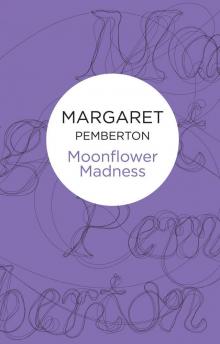 Moonflower Madness
Moonflower Madness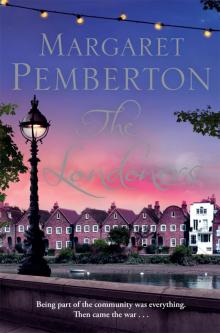 The Londoners
The Londoners The Flower Garden
The Flower Garden Yorkshire Rose
Yorkshire Rose Vengeance in the Sun
Vengeance in the Sun Zadruga
Zadruga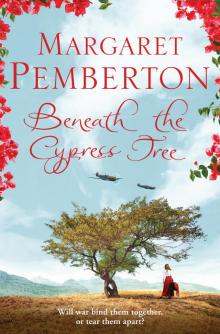 Beneath the Cypress Tree
Beneath the Cypress Tree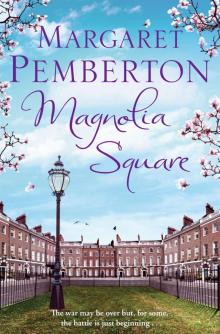 Magnolia Square
Magnolia Square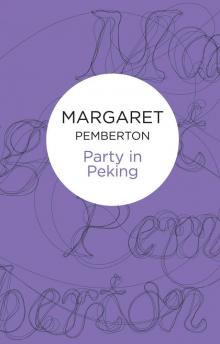 Party in Peking
Party in Peking Lion of Languedoc
Lion of Languedoc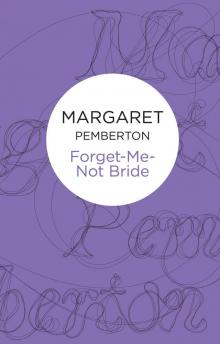 Forget-Me-Not Bride
Forget-Me-Not Bride The Guilty Secret
The Guilty Secret Rendezvous With Danger
Rendezvous With Danger A Season of Secrets
A Season of Secrets Silver Shadows, Golden Dreams
Silver Shadows, Golden Dreams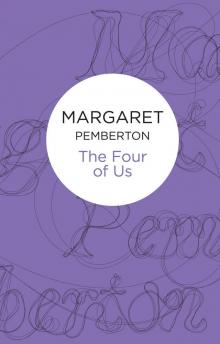 The Four of Us
The Four of Us Devil's Palace
Devil's Palace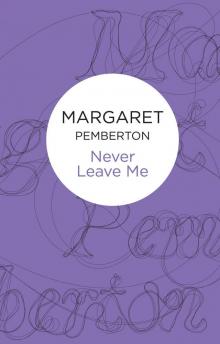 Never Leave Me
Never Leave Me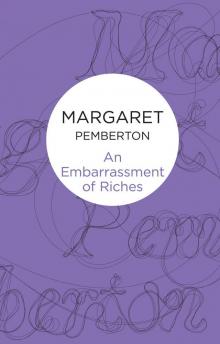 An Embarrassment of Riches
An Embarrassment of Riches African Enchantment
African Enchantment White Christmas in Saigon
White Christmas in Saigon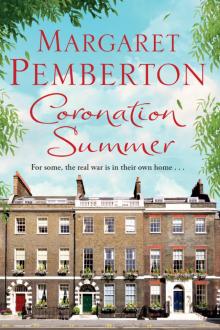 Coronation Summer
Coronation Summer A Multitude of Sins
A Multitude of Sins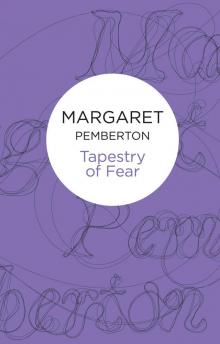 Tapestry of Fear
Tapestry of Fear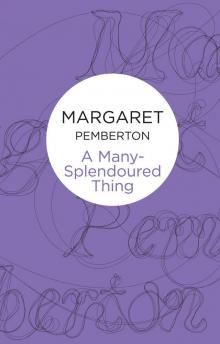 A Many-Splendoured Thing
A Many-Splendoured Thing